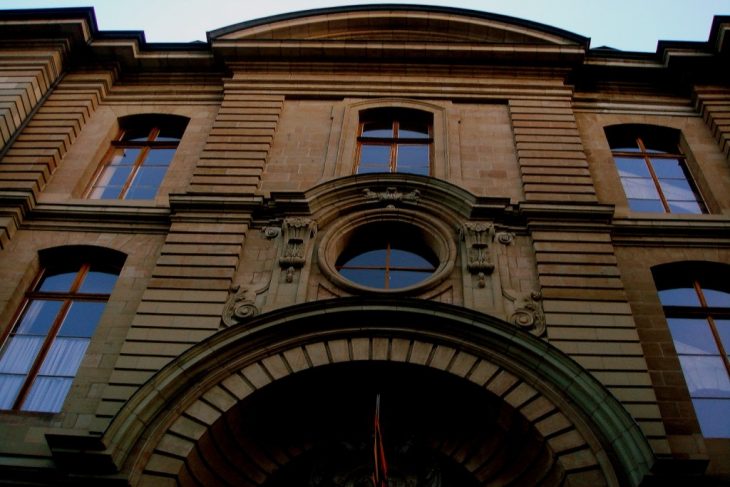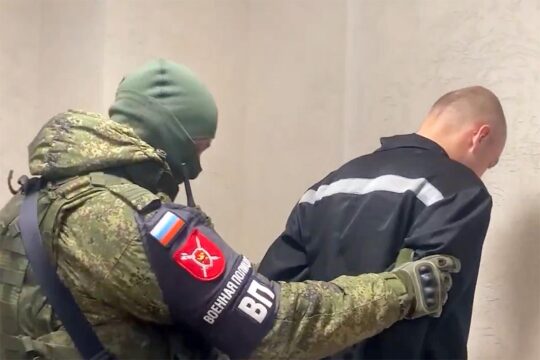Swiss anti-impunity NGO TRIAL, supported by Amnesty International, has just published a new manual on how Swiss law can be used to prosecute international crimes under the principle of universal jurisdiction. Following changes to the law in 2011, Switzerland should be a model in this field, says TRIAL, but it still has a long way to go.
The manual (in French) is entitled “The Fight against Impunity under Swiss Law: Universal Jurisdiction and International Crimes”. Written by a group of specialist lawyers, it lays out provisions and concepts of universal jurisdiction under current Swiss law, as well as the authorities competent to handle cases. TRIAL says it is aimed at lawyers and researchers, but also all those interested, including human rights groups interested in bringing cases in Switzerland.
The principle of universal jurisdiction allows national authorities to prosecute crimes committed outside their territory and by non-nationals in the case of “international crimes”, i.e. genocide, war crimes, crimes against humanity and torture. High-profile cases pursued under this principle include Britain’s arrest of former Chilean dictator Augusto Pinochet in 1998, and the trial of former Chadian dictator Hissène Habré before a special court in Senegal, which is currently ongoing.
JusticeInfo.Net spoke to TRIAL’s head of criminal law and investigations Benedict De Moerloose and asked him about advances in the use of universal jurisdiction.
Benedict De Moerloose: It’s a principle that has advanced a lot in recent years but has also suffered some setbacks. States are sometimes quite reluctant to make use of universal jurisdiction, because when it concerns high-ranking individuals from other countries it also comes with diplomatic problems.
JusticInfo.Net: Your manual is focussed particularly on Swiss law and practice. Why are you focussing on Switzerland?
BM: Our universal jurisdiction project started for Switzerland mainly, and we can say there is quite a lot to do already in Switzerland. We have different cases filed before the Swiss Federal Prosecutors. One case concerns, for example, a former Algerian Minister of Defence who was the most important figure at the beginning of the Algerian civil war (Khaled Nezzar). We’ve filed cases against different companies headquartered in Switzerland for war crimes, we have a case filed against a militiaman from the war in the Balkans and other cases that are still confidential. So there is quite a lot to do, and also Swiss law has changed, so it was important to explain the changes. (…) It was important to show the possibilities offered in Switzerland in terms of universal jurisdiction and also to show that there is an obligation in Switzerland. Like other European countries, it is visited or is a place to stay for alleged international criminals. There are a lot of people going through for different reasons. You have people coming to conferences, coming for health treatment, and other high profile individuals that come to Switzerland. So it has the potential to be an important hub for universal jurisdiction prosecutions. We needed to show that the law allows and obliges Switzerland to go after these international criminals. It also helps us highlight that there is a lack of will and lack of means granted to Swiss prosecuting authorities to go after these crimes.
JusticInfo.Net: Have there been cases in Switzerland where the use of universal jurisdiction has led to a conviction?
BM: There is one case, but this case was finished fifteen years ago. (Editor’s note: Rwandan Fulgence Niyonteze was sentenced in 2000 to 14 years in jail for involvement in the 1994 genocide). So it’s only one case and it was with the former law, so it was before a military court, and now that has changed. That’s exactly what I was saying, there’s a high potential in Switzerland, a very good law, but there are no convictions. I think the reason is quite clear. There is no will and not sufficient means. (…) There are people coming to Switzerland and living in Switzerland that should be put under investigation, but that is not the case. (…) You have a recent investigation by a leading newspaper, Le Matin Dimanche, which showed that in the beginning you had four positions inside the public attorney’s office that were supposed to investigate and prosecute those international crimes and that now you have, if I can say, half of a prosecutor working on those cases. There are no police officers specifically ascribed to those cases. So Switzerland has very nice speeches about human rights and the need for justice, but in practice it’s very deficient. So we are calling on the authorities to change this and put words into action.
JusticInfo.Net: Which are the countries that you think are making the most progress on universal jurisdiction?
BM: The best example is probably the Netherlands. They have a war crimes unit inside the police, the immigration office, the prosecuting authorities, the Ministry of Justice. All in all, you have about 70 people working on those cases, and those cases lead to prosecutions. The French have a special war crimes unit as well. I think it is still insufficient in terms of resources, but there are some advances and you can see that there have been convictions. They have been working a lot on Rwanda. (…) The German war crimes unit is also short of staff but also working seriously on a few cases and you can see the convictions happening a few weeks ago in the FDLR case (Editor’s note: two members of the FDLR rebel group were convicted in September 2015 to 8 and 13 years in jail for war crimes in the DR Congo). Then you have problematic countries like the UK. Its main problem is that anti-terrorism and international crimes are together in the same unit, so you can imagine that in terms of priorities, terrorism is ahead. And I am very worried by the fact that Switzerland also recently integrated its war crimes unit into the terrorism unit. I doubt that this is a good move. If you want to prevent terrorism, you need to fight war crimes.







